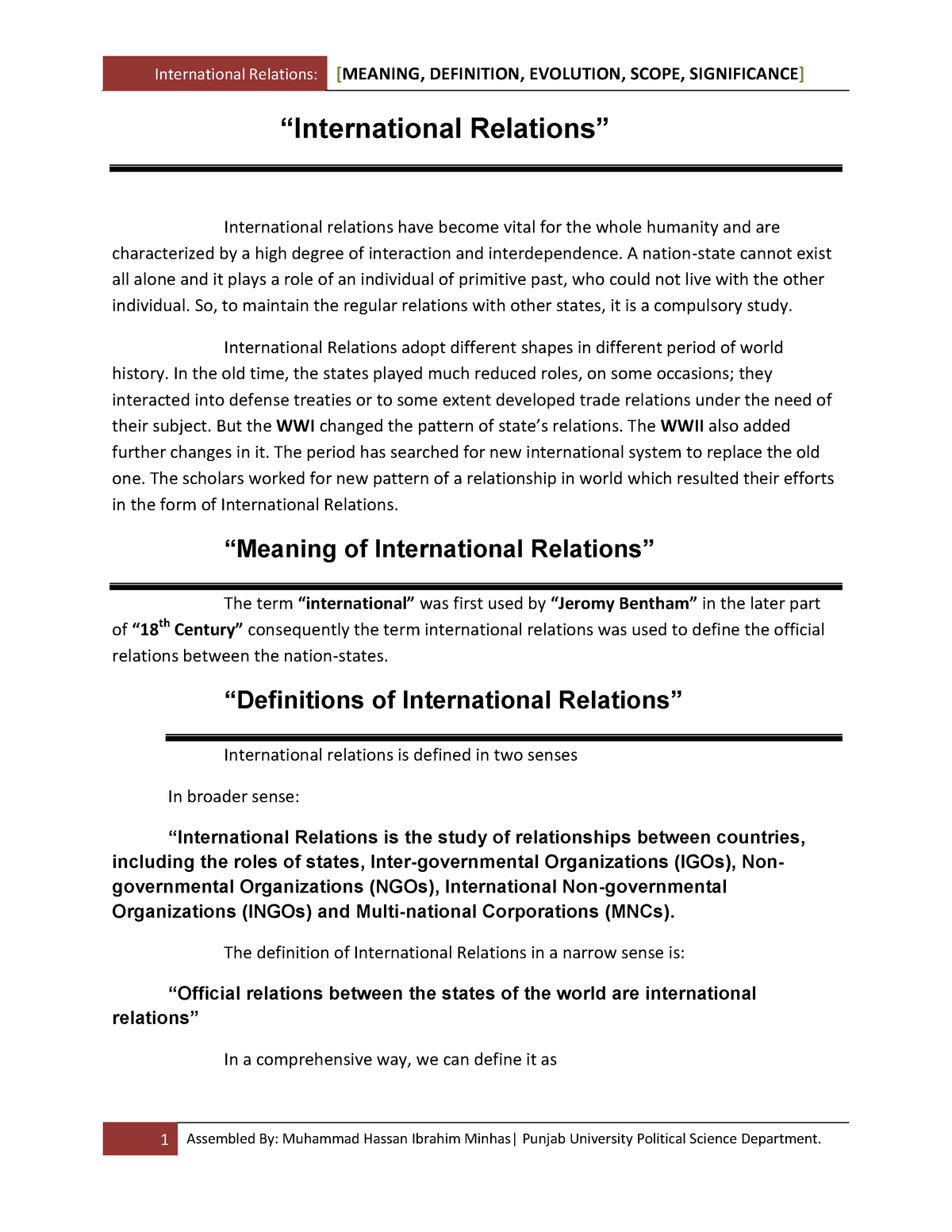I. Introduction

The Definition and Scope of International Relations.
Global relations is a part of political theory that arrangements with the investigation of connections between country states, as well as intergovernmental and worldwide associations, non-legislative associations, and worldwide companies. It incorporates many issues, including international strategy, worldwide security, global regulation, tact, globalization, and worldwide political economy. The extent of global relations has extended to incorporate new entertainers, for example, common society gatherings and transnational social developments, and new issues, for example, environmental change, digital protection, and helpful mediation. The field looks to comprehend and make sense of examples of conduct among entertainers in the global framework and to distinguish systems for overseeing clashes and advancing collaboration.
The Country State Framework
The country state framework alludes to the political design where the state is viewed as the essential entertainer in global relations and the country as the premise of political authenticity. In this framework, a country state is a sovereign express whose residents or subjects are generally homogeneous in variables like language, culture, or potentially religion. The country state framework arose in Europe during the seventeenth and eighteenth hundreds of years and turned into the predominant model for putting together the world’s political topography through the twentieth 100 years. It is described by the possibility of the sway of states, where each state has elite command an over its own area and homegrown undertakings, and by the standard of non-mediation in the undertakings of different states.
Development of Global Society
The advancement of global society alludes to the improvement of connections, standards, and rules among states over the long haul. This cycle has involved different stages and changes in the global framework, including the development of the cutting edge state framework, the ascent of expansionism and dominion, the two universal conflicts, and the arrangement of the Assembled Countries.
In the early present day time frame, the Settlement of Westphalia (1648) denoted a critical defining moment in the development of worldwide society by perceiving the power of states and laying out the guideline of non-mediation in the inside issues of different states.
During the pilgrim time frame, European powers laid out provinces and realms in different regions of the planet, prompting the enslavement of numerous social orders and the spread of Western culture and foundations. This period additionally saw the improvement of global regulation and establishments, for example, the Class of Countries, which looked to advance harmony and collaboration among states.
The two universal conflicts denoted a significant defining moment in worldwide relations, as they brought about the development of new global foundations and the rise of new powers on the worldwide stage. The Unified Countries was laid out after The Second Great War to advance global collaboration and forestall future struggles.
Today, global society is described by a mind boggling trap of connections among states, non-state entertainers, and worldwide associations. This incorporates continuous discussions and clashes over issues like basic freedoms, global exchange, and the climate.